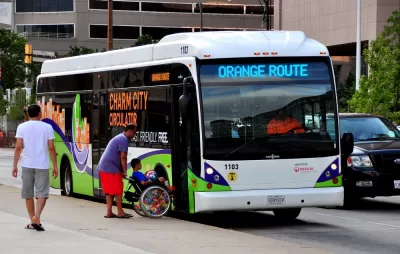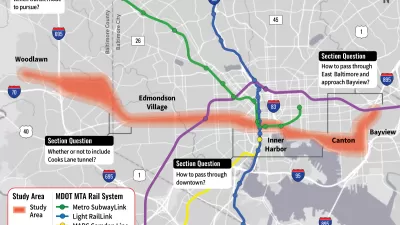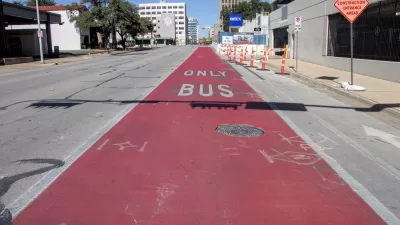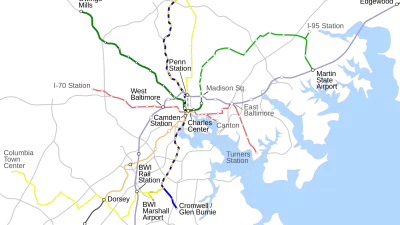A funding formula that frequently determines the scope and quality of transit in the state of Maryland could be reformed by state legislators this year.

Brian O'Malley reports on legislation in Maryland that would change the funding formula for transit everywhere in the state.
Currently, Maryland transit systems are handcuffed by a requirement that all transit systems pay for at least 35 percent of its operating budget with rider fares—the farebox recovery mandate, to use the technical term. The state's farebox recovery affects "Maryland Transit Administration (MTA) products, like MTA local (aka Baltimore’s bus service) and commuter buses (which primarily serve the District), the three MARC commuter lines, and Baltimore’s Light Rail and Metro subway lines," according to O'Malley.
"The result of complying with this mandate is that MTA regularly has no choice but to refrain from investing in services and maintenance even if those things would grow ridership and revenues over time," according to O'Malley. "In public meetings, MTA officials often cite the farebox recovery mandate as a limiting factor when responding to requests to provide service to growing employment sites or other destinations, like a new Amazon warehouse distribution facility in Baltimore."
In response, two bills are moving through the Maryland State Legislature. House of Delegates Bill 271 and Senate Bill 484 have both passed through committee, with "broad support among central Maryland transit advocates, business leaders and riders," according to O'Malley.
FULL STORY: How Maryland handcuffs its transit system, and how that could change

Alabama: Trump Terminates Settlements for Black Communities Harmed By Raw Sewage
Trump deemed the landmark civil rights agreement “illegal DEI and environmental justice policy.”

Study: Maui’s Plan to Convert Vacation Rentals to Long-Term Housing Could Cause Nearly $1 Billion Economic Loss
The plan would reduce visitor accommodation by 25% resulting in 1,900 jobs lost.

Why Should We Subsidize Public Transportation?
Many public transit agencies face financial stress due to rising costs, declining fare revenue, and declining subsidies. Transit advocates must provide a strong business case for increasing public transit funding.

Paris Bike Boom Leads to Steep Drop in Air Pollution
The French city’s air quality has improved dramatically in the past 20 years, coinciding with a growth in cycling.

Why Housing Costs More to Build in California Than in Texas
Hard costs like labor and materials combined with ‘soft’ costs such as permitting make building in the San Francisco Bay Area almost three times as costly as in Texas cities.

San Diego County Sees a Rise in Urban Coyotes
San Diego County experiences a rise in urban coyotes, as sightings become prevalent throughout its urban neighbourhoods and surrounding areas.
Urban Design for Planners 1: Software Tools
This six-course series explores essential urban design concepts using open source software and equips planners with the tools they need to participate fully in the urban design process.
Planning for Universal Design
Learn the tools for implementing Universal Design in planning regulations.
Smith Gee Studio
Alamo Area Metropolitan Planning Organization
City of Santa Clarita
Institute for Housing and Urban Development Studies (IHS)
City of Grandview
Harvard GSD Executive Education
Toledo-Lucas County Plan Commissions
Salt Lake City
NYU Wagner Graduate School of Public Service





























